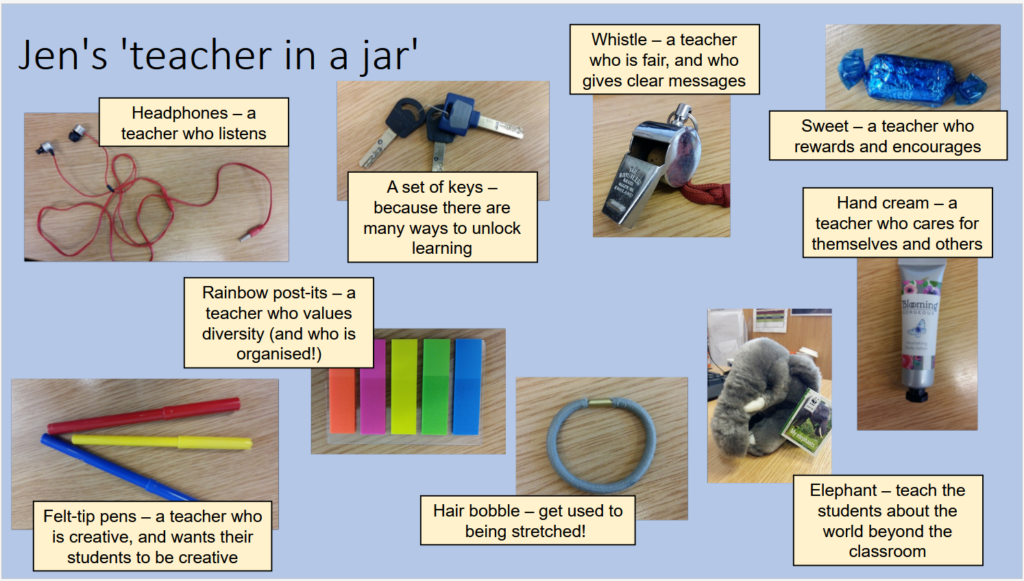Congratulations on being offered a place on our PGCE primary university-centred programme.
Key Programme Dates
Induction Day: Saturday 15th June 2024
First day of the programme: Monday 2nd September 2024
The following information has been provided to ensure you are ready to begin your career in teaching and prepare you for the professional and academic expectations of the PGCE.
Please make sure you work through all the information and tasks provided for you as this will ensure you are able to make a positive start to your training programme.

York St John University
As you prepare to start your PGCE, please make sure that you have met all of the conditions attached to your offer by the stipulated deadline.
This will include:
- DBS documentation
- GCSE confirmation or equivalency tests
- Degree confirmation
If you have any questions in relation to your conditions, please do contact our admissions department at pgce@yorksj.ac.uk
Please also note that our admission team will be available on our face-to-face induction day on Saturday 15th June. There will be more information about the university induction day to follow; for now, save the date in your diary.
Course Calendar 2024-25
This calendar indicates your placement dates for 2024-25.
When not in school, you will be on campus for your university-based training, including during some of the school half-term holidays. A more detailed timetable will be shared with you on the first day of the course.
The Importance of Reading for Pleasure
Reading is a fundamental skill that unlocks learning across the whole curriculum. As primary school teachers, it is essential that we promote the joy of reading, as research shows that those children who choose to read develop academically and socially. Therefore, you must become a role model for the children in your class and promote the value of reading across the whole curriculum. To support you with this, we have provided you with the following list of recommended texts. Please select the age range that you will be teaching and spend some time over the summer enjoying examples of children’s literature. There is no need to buy these texts but I would recommend visiting your local library and accessing the children’s section. Happy reading!
There is no deadline for this task – start building your knowledge of children’s literature now and continue throughout your course (and career!)
Developing your General Knowledge
As a primary school teacher, you are required to teach the full range of National Curriculum subjects and areas of the EYFS Framework, and although we acknowledge that each teacher will have curriculum strengths, all teachers need to develop a secure grounding across all subjects. To support you with your broader curriculum knowledge, we request that you spend some time reflecting on those areas where your general knowledge is weak and begin to gain experience.
To facilitate this, you should visit local museums, art galleries and places of worship as these are rich sources of curriculum knowledge.
The following is a useful website to locate museums and galleries in your area.
https://www.great-days-out.co.uk/museums-galleries/yorkshire-and-the-humber/
Subject Knowledge audits
The following audits have been written to ensure you are aware of the level of subject knowledge required to be a primary school teacher. The audits are a formative tool and enable you to reflect and identify areas of personal need. The audits cover key aspects of the English, mathematics and science curriculum content and to ensure you are prepared to teach these, revision in weaker areas will be needed during the summer.
Please access the audits via the links contained within the following word documents. Once completed, record you scores on the same tracking document and record any revision work you have done as preparation for your start in September. Please note that these audits will be repeated before you begin your final placement to demonstrate progress. You should be prepared to show your subject knowledge audit scores with your alliance in September as areas of development will inform your early targets. Please also save your completed subject knowledge trackers electronically because you will need to upload these onto your electronic portfolio (Pebblepad) at a later date.
Suggested reading and resources have been provided to support your revision and again these can be found in the documents below. These should be a starting point and not a definitive list. Please be as proactive as you can be and use the time over the summer to revise and build confidence in areas where develop is needed.
We would suggest that you complete the audits before your face-to-face induction day (Saturday 15th June) as we will be holding subject knowledge taster events on this day and you can select the most appropriate workshops that will support areas of development
English-Subject-Knowledge-audits-and-tracker-2023Download
Mathematics-Subject-Knowledge-audits-and-tracker-2023Download
science-Subject-Knowledge-audits-and-tracker-2023Download
Resources-to-support-your-English-subject-knowledge-1Download
Resources-to-support-your-mathematics-subject-knowledge-2Download
Resources-to-support-your-science-subject-knowledge-1-1Download
Pre and post key stage placements
As you will have seen on the course calendar, student teachers need to arrange and complete their own pre and post key stage placements.
- Lower Primary student teachers: Pre & Post placement
- 2 days in a setting where there are children aged between 0 to 3 years old, e.g., a day nursery, crèche or playgroup (early learners). This should be a setting not part of a school.
- 2 days in a Key Stage 2 class (any or all from Year 3 to Year 6)
- Upper Primary student teachers: Pre & Post placement
- 2 days in Key Stage 1 (Year 1 and Year 2). If the setting you visit also has an EYFS (Early Years Foundation Stage) unit, it would be advisable to spend half a morning here too.
- 2 days in a Key Stage 3 school (from Year 7 to Year 9)
There are four days set aside within the programme to do these:
Thursday 26th & Friday 27th September 2024
Monday 30th & Tuesday 1st October 2024
You should aim to arrange these placements as soon as possible – ideally before schools close for the summer in July. They could be undertaken in any order. You may already have links to some schools or settings that you can use to organise your placements. There may be other student teachers also contacting the same settings and schools and it is advisable that you organise your placements as early as possible.
Please note, the university placements office will not be able to support with these placements. Keep trying!
Further details about the placements can be found in the handbook below
Professionalism
Professionalism is a fundamental aspect of the role of the teacher and this expectation is far-reaching. It covers how we present ourselves, how we communicate (written and verbal) and meeting the professional expectations of the Teachers’ Standards.
To support you in understanding the professional expectations of the PGCE, the following PowerPoint allows you to reflect on your current understanding and consider what aspects you may still need to develop, e.g. time management skills, standard English or understanding of school policy. Please click on the link below to access the PowerPoint and save a copy to your device. This will allow you to work through the session in your own time.
Professional Competency Test
The Professional Competency Test has been devised to allow you to demonstrate the required skills in essential literacy and numeracy that have been identified by the DfE. All teachers are required to be effective communicators and interpret data. Therefore, you need to demonstrate a minimum level of these skills to be awarded Qualified Teacher Status.
To help you demonstrate your competency in these essential skills, you should take the following test which can be accessed via the link below.
https://yorksj.eu.qualtrics.com/jfe/form/SV_bIUhM4QGhSBn9JA
The pass mark is 65%. If you reach the required pass mark, you will not need to take the test again. If you do not reach a pass mark, please do not worry as there will be further opportunities throughout your programme to re-sit.
There is no need to record this score anywhere as we will track who has passed and who needs to re-sit later in the year. Please remember to include your full name when completing the test.
Your first attempt at the professional competency test needs to be completed by Monday 2nd September 2024.
Safeguarding

Please note that the remote module (Prevent Awareness – Course 1 only) must be completed before your September start date and you MUST present your certificate to your school as proof of completion on the very first day of attending school. Please do keep electronic copies of any certificates as these will need to be uploaded to your online portfolio at a later date. Even if you have undertaken this training previously, this must be renewed before your September start date.
FGM recognition and prevention is an important aspect of your safeguarding training and the Home Office remote training module can be accessed from the link below. You will need to register to access the training but you can simply do this by following the link.
Please ensure that you have completed the remote module by 2nd September and you have a copy of the certificate to show to your school on your first school-based day. An electronic copy of your certificate should be saved to allow you to upload this to your online portfolio later in the year.
Induction Day 15th June
Your face-to-face induction day is timetabled for 15th June. Please arrive at 9am and meet in the dining room where our admission team will check your certificates and clarify any conditions you will still have, e.g. degree certificates or DBS enquiries.
Input from the programme team will begin at 9:30in the Fountains Lecture Theatre and there will be opportunities throughout the day to take part in subject knowledge taster workshops . The day is due to finish at 15:30.
The timetable for the day can be found below together with any PowerPoints we will be using and your Induction Handbook. Please download these as access is time sensitive.
Primary-Timetable-15.6.24Download
Link to induction day PowerPoints
Placements information form
Basic Safeguarding Awareness
The document below gives clear instructions on how to access the remote training provided by York St John University and how to access the Qualtrics quiz which will ensure you are presented with your basic safeguarding certificate. Please ensure you follow all of the steps in the instructions as this will mean we are able to present you with your certificates. If you have any problems, please contact our admin team at admin.teachereducation@yorksj.ac.uk
Meeting the Academic Expectations of your PGCE
The following workshops have been designed to support you in meeting the academic expectations of your PGCE programme. Studying at M Level is a significant leap for undergraduate study. It is expected that you read with a critical eye and present discussions that are informed by a wide range of valid research. This way, you can become genuinely informed about current education policy and practice.
The Reading Critically workshop aims to develop your reading skills and asks you to question the relevance and validity of the sources you are reading. Please do engage with this workshop before you move onto the writing workshop as reading critically is the foundation to M Level writing.
Reading Critically Workshop.pptx
The Critical Writing workshop aims to support your writing development and allows you to gain formative feedback on your academic writing before you submit your first assessment. Please do engage with the PowerPoint below and prepare a 500 word critical response to the identified article. Please remember that we want your writing in its rawest form so any feedback we provide will be valuable and based upon your need. Your formative 500 word response should be submitted in the first week on your PGCE (week beginning 2nd Sept) once you have access to Moodle.
CV
In preparation for the start of your PGCE, you are required to complete a brief CV. Please complete the template bellow and save this electronically. You will required to upload this to Pebblepad once you have received training. Please do remember to save electronic copies of everything you undertake during the induction period and save them to either a memory stick or accessible cloud storage, e.g. OneDrive.
Organisation and information concerning the 2nd and 3rd September will be posted here by the end of August.
Teacher in a Jar
This is a task to complete over the summer. The aim is to start thinking about your personal teaching philosophy by collecting a small group of items that represent your beliefs about teaching. Please bring this into university on Friday 6th September.
1. Choose a glass jar or other transparent container – the size is up to you.
2. Think about the qualities and attributes you believe a teacher needs.
3. Find small items that can represent these – aim for between 5 and 10.
Here’s Jen’s Teacher-in-a-Jar to give you a few ideas – you can steal some of these or think of your own!

Programme Handbook 24-25
Please read the programme handbook below which details the structure, design and implementation of the PGCE Primary University Centred programme. It is a useful reference point for anything you need to know about the programme such as contact details, dates, calendars and requirements.
From Friday 19th July, the blog will not be updated for a number of weeks due to annual leave. At the end of August further information will be shared about the structure of your first day, Monday 2nd September, 9.00 -5.00pm. In the meantime , please review and complete the above sections of the ‘Induction blog’ and associated tasks to ensure you are best prepared to begin the programme. We look forward to seeing you all in September …